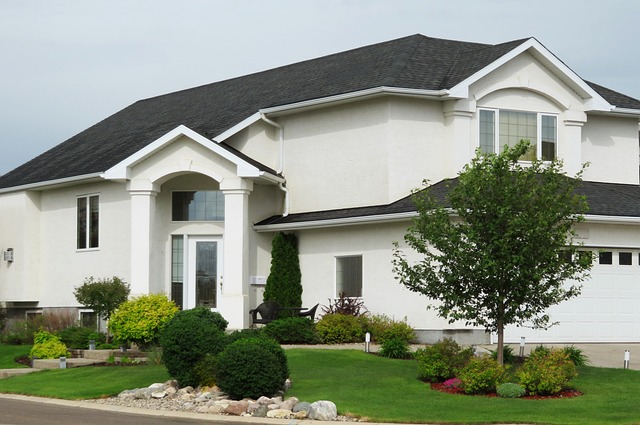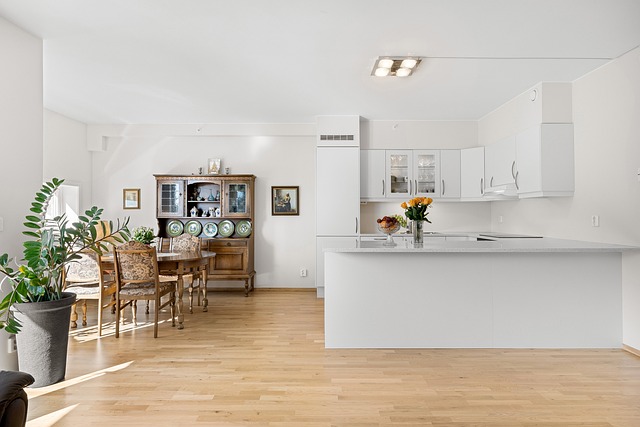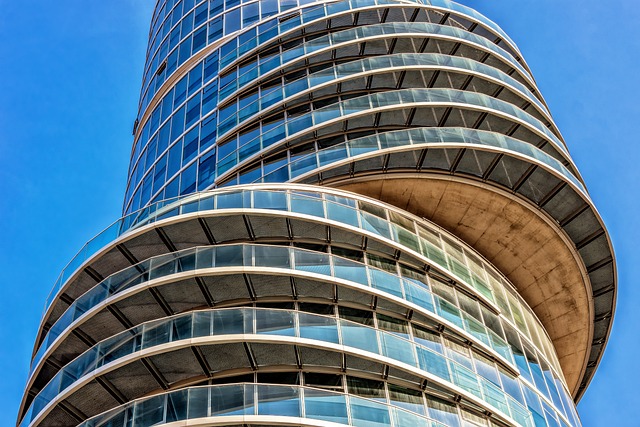Singapore's Executive Condominium (EC) rental market is a dynamic segment of the real estate landscape, offering spacious and amenity-rich housing options for both locals and expatriates. ECs serve as a mid-income housing solution between public and private sectors, featuring competitive pricing with a commitment period after which units can be freely rented or sold. The market encompasses a diverse selection of ECs across the island, including suburban and central areas, each with its own appeal and accessibility to essential services and transportation. Rental prices are influenced by factors such as the development's age, stage, location, and proximity to schools and transport networks. The recent policy change extending the Minimum Occupation Period (MOP) to 10 years is expected to increase the availability of EC units for rent. Government initiatives aimed at supporting family-formed households and economic growth continue to drive demand for these properties. For those interested in an available EC in Sg, it's essential to stay informed on HDB regulations and market trends to navigate the rental process effectively. As new EC projects come online, they will contribute to meeting the evolving housing needs within Singapore.
Exploring the nuances of Singapore’s Executive Condominium (EC) rental market, this article offers a comprehensive overview of the dynamics at play. From the diverse types of ECs available in SG to the factors influencing rent prices, we delve into the legal framework governing EC leases and the demographics shaping demand. With insights into current trends and predictions for the future, this piece serves as a guide for understanding the intricacies of renting an EC in Singapore. Whether you’re a prospective tenant or investor, this article is designed to provide valuable knowledge on the availability of ECs in SG and the market’s trajectory.
- Understanding the EC Rental Market in Singapore
- Types of Executive Condominiums (ECs) Available in SG
- Factors Influencing EC Rent Prices in Singapore
- Demographics Driving the EC Rental Demand in Singapore
- The Legal Framework for Renting ECs in Singapore
- Future Trends and Predictions for the EC Rental Market in Singapore
Understanding the EC Rental Market in Singapore

Residents and expatriates alike seeking housing options in Singapore often explore the Executive Condominium (EC) rental market, a unique segment that offers a blend of public and private housing benefits. The ECs in Singapore are designed to cater to the mid-income group, providing spacious living quarters with communal facilities, often at a more affordable rate compared to private condominiums. These properties come with a minimum occupancy period and after fulfilling this requirement, they become available for sale and rental on the open market. Prospective tenants will find that the EC rental market offers a diverse range of options across various locales in Singapore, from suburban estates to more centralized neighborhoods, each with its unique charm and conveniences. The availability of ECs in Sg is influenced by factors such as the maturity of the estate, proximity to amenities, and the developmental phase of the project, which can affect rental prices and tenant interest. Understanding the intricacies of this market involves recognizing the varying lease terms, the impact of government housing policies, and the ever-evolving landscape of property values in Singapore. Tenants and investors alike must navigate these elements to make informed decisions within the EC rental market, ensuring a successful tenancy or investment venture.
Types of Executive Condominiums (ECs) Available in SG

Singapore’s Executive Condominium (EC) landscape offers a diverse range of living options for individuals and families looking to reside in a space that bridges the gap between public and private housing. Prospective residents can choose from an array of available ECs in SG, each tailored to cater to different preferences and needs. These residences come with a host of facilities, including swimming pools, gyms, playgrounds, and BBQ pits, providing a self-contained community atmosphere. They are also equipped with smart home features, ensuring residents enjoy modern living convenience. Notably, some of the popular ECs in SG include projects like The Canopy, Parc Life, and Skypark Residences, each offering unique selling points such as prime locations, spacious units, and exceptional amenities. These ECs are designed to offer a blend of privacy and community living, with the added benefit of being situated close to essential amenities like shopping centers, schools, and transport nodes, making them highly sought after in the region. The availability of these ECs is a testament to the dynamic nature of Singapore’s housing market, where such residences provide an attractive proposition for upgraders looking for a step up from HDB flats while offering the affordability and flexibility that come with public housing.
Factors Influencing EC Rent Prices in Singapore

The rental prices for Executive Condominiums (ECs) in Singapore are influenced by a multitude of factors, which include geographic location, property age, and market demand. Situated between private condos and HDB flats, available ECs in SG, like Canberra Residences and Parc Canberra, offer a middle ground for homeowners looking to upgrade from a public to a private property. Proximity to established schools, transportation nodes, and local amenities can significantly impact rental rates, as families often prioritize these factors for the convenience and well-being of their children. Additionally, the maturity of the development also plays a role; newer ECs may command higher rents due to their modern finishes and facilities, while older units might be more competitively priced. Market trends and economic conditions are also pivotal; during periods of economic growth or when there’s a housing shortage, rental prices for ECs tend to rise. Conversely, in a slower market with an oversupply of properties, renters may find more favorable terms. The Singapore government’s policies and regulations, such as those pertaining to the eligibility criteria for purchasing an EC, also affect the rental landscape, influencing both supply and demand dynamics within the market. Investors and tenants alike closely monitor these factors to make informed decisions on renting ECs in Singapore, recognizing that each of these elements can sway the pricing of available ECs in SG significantly.
Demographics Driving the EC Rental Demand in Singapore

The rental demand for Executive Condominiums (ECs) in Singapore is driven by a diverse array of demographics, each with distinct needs and preferences. Single professionals and young couples often seek out ECs as a more affordable alternative to private condominiums while still benefiting from the features of high-end living. These individuals typically prioritize location, amenities, and space within their budget constraints. Additionally, families looking for larger units with more room to grow find ECs particularly appealing due to their size and affordability compared to HDB flats. With the introduction of newer ECs like the available Tampines GreenPark EC, these residential offerings are becoming increasingly popular among both young families and professionals seeking a step up from traditional public housing while retaining the benefits of Singapore’s public rental scheme. The strategic location of such ECs, often near key transportation hubs and commercial centers, further enhances their desirability. This demand is underpinned by government policies that encourage homeownership and offer diverse housing options to meet the evolving needs of Singapore’s population. As a result, the rental market for ECs in Singapore remains dynamic, reflecting the changing landscape of the city-state’s living preferences and economic growth.
The Legal Framework for Renting ECs in Singapore

In Singapore, the rental market for Executive Condominiums (ECs) is governed by a comprehensive legal framework that ensures both the rights of owners and the protections for tenants are upheld. Prospective renters interested in available ECs in SG should familiarize themselves with the Housing & Development Board (HDB) regulations, as these units start as HDB flats before qualifying as ECs after satisfying certain criteria. The legal framework mandates that upon completion of the minimum occupation period, which is typically five years, ECs can be sold to private individuals, potentially altering their rental terms. Renters must adhere to the HDB’s rental guidelines, which include obtaining the necessary approval for subletting and ensuring that the lease agreement is registered with the HDB. Additionally, the Minor Amendments to the Resale Price Act in 2019 allowed for the rental of resale EC units without restriction, provided all statutory boards’ requirements are met. This legal clarity has facilitated a smoother process for renters looking to lease an available EC in SG, enhancing transparency and efficiency within the market. It is advisable for tenants to consult the latest HDB guidelines or seek professional advice to navigate the legalities of renting an EC in Singapore effectively.
Future Trends and Predictions for the EC Rental Market in Singapore

The Executive Condominium (EC) rental market in Singapore has been a dynamic segment, evolving in response to demographic shifts and policy changes. As new EC projects become available, such as those in Sengkang or Tampines, the variety of units catering to middle-income families continues to expand. Looking ahead, several trends are poised to shape the EC rental landscape. With the introduction of a 10-year Minimum Occupation Period (MOP) for EC units, which was implemented to distinguish ECs from private condominiums, there is an anticipation that these properties will become increasingly attractive to renters once they are eligible. This change is expected to influence long-term rental demand, as residents who initially purchased these units may opt to rent them out after satisfying the MOP.
Furthermore, the government’s approach to public housing, including ECs, has a significant impact on the market. Policies that encourage marriage and parenthood among eligible couples could drive up demand for larger units within these developments. Additionally, the ongoing growth of Singapore’s economy and population is likely to sustain robust rental demand, particularly in areas with good connectivity to the city and amenities. Investors and renters alike should monitor the completion and launch of new available ECs in Sg, as these will provide fresh options for those seeking a balance between the affordability of public housing and the conveniences of condominium living. The EC rental market’s future is thus tied to how these developments align with the evolving needs and preferences of residents, investors, and the broader economic environment.
The EC rental market in Singapore presents a dynamic and multifaceted landscape, catering to a diverse array of tenants. With an understanding of the types of Executive Condominiums (ECs) available in SG and the factors influencing their rental prices, potential renters can navigate this market with greater confidence. The demographics driving demand underscore the evolving needs and preferences of residents, while the legal framework ensures a stable and orderly rental environment. Looking ahead, the trends and predictions for the EC rental market in Singapore highlight its continued importance as an integral component of the nation’s housing options. Prospective tenants considering an available EC in SG should remain informed on these developments to make the best decisions for their living arrangements.
